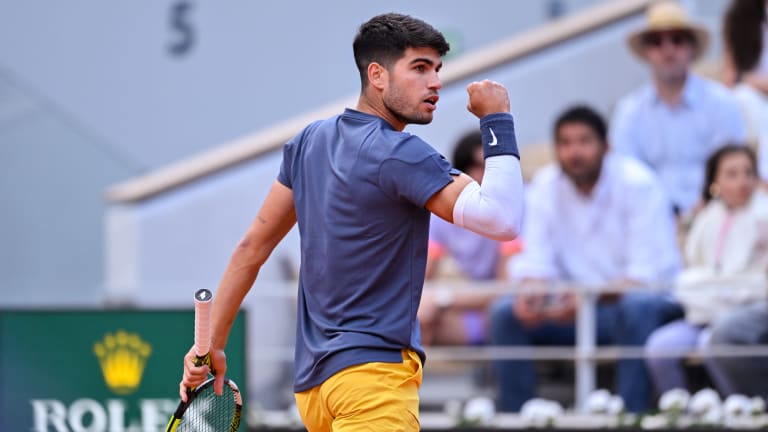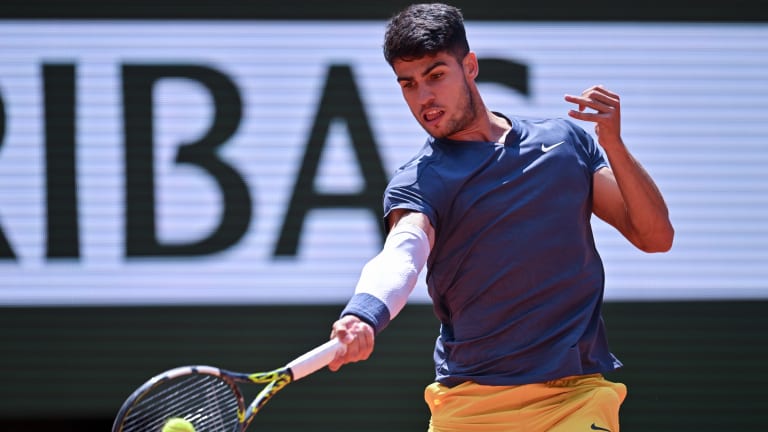Roland Garros
After rolling in Roland Garros opener, Carlos Alcaraz says his Paris expectations 'probably got higher'
By May 26, 2024Roland Garros
Was the Carlos Alcaraz-Jannik Sinner Roland Garros match the best ever played?
By Jun 13, 2025Roland Garros
Who were the winners and losers at 2025 Roland Garros?
By Jun 09, 2025Roland Garros
Carlos Alcaraz and Jannik Sinner played the match of the decade, and maybe the century, at Roland Garros
By Jun 09, 2025Roland Garros
PHOTOS: Carlos Alcaraz captivates Chatrier with trademark joy after improbable Roland Garros title defense
By Jun 09, 2025Roland Garros
Carlos Alcaraz saves three match points, tops Jannik Sinner in longest Roland Garros final of Open Era
By Jun 08, 2025Roland Garros
Aryna Sabalenka clarifies controversial Coco Gauff claim: "Can't pretend it was a great day"
By Jun 08, 2025Roland Garros
Coco Gauff counters Aryna Sabalenka's Roland Garros claim by saying she 'wanted' Iga Swiatek in final
By Jun 08, 2025Roland Garros
2025 Roland Garros men's final preview: Carlos Alcaraz vs. Jannik Sinner
By Jun 07, 2025Roland Garros
PHOTOS: Coco Gauff celebrates Roland Garros title with parents, toasts champagne at Tennis Channel set
By Jun 07, 2025After rolling in Roland Garros opener, Carlos Alcaraz says his Paris expectations 'probably got higher'
The Spaniard says he was still “afraid to hit every forehand 100%” in his one-sided win over J.J. Wolf. But could dialing back that shot now and then actually be a good thing?
Published May 26, 2024
Advertising

Despite "low expectations," Alcaraz rolled in his return to Paris.
© Getty Images
Advertising

Solid, if not spectacular, was enough on the forehand side for Alcaraz against Wolf.
© Getty Images